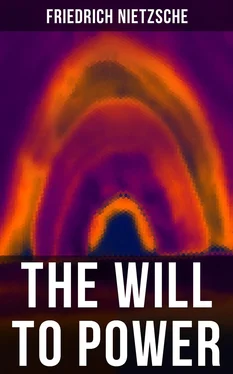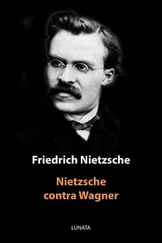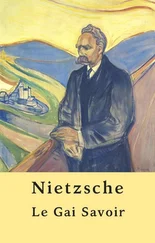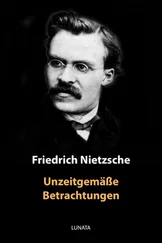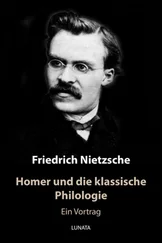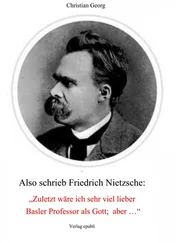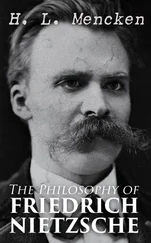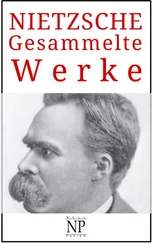This attitude of mind, in which a certain type of man is bred, starts out with this absurd hypothesis: good and evil are postulated as realities which are in a state of mutual contradiction (not as complementary values, which they are), people are advised to take the side of the good, and it is insisted upon that a good man resists and forswears evil until every trace of it is uprooted— but with this valuation Life is actually denied, for in all its instincts Life has both yea and nay. But far from understanding these facts, this valuation dreams rather of returning to the wholeness, oneness, and strengthfulness of Life: it actually believes that a state of blessedness will be reached when the inner anarchy and state of unrest which result from these opposed impulses is brought to an end.—It is possible that no more dangerous ideology, no greater mischief in the science of psychology, has ever yet existed, as this will to good: the most repugnant type of man has been reared, the man who is not free, the bigot; it was taught that only in the form of a bigot could one tread the path which leads to God, and that only a bigot's life could be a godly life.
And even here, Life is still in the right—Life that knows not how to separate Yea from Nay: what is the good of declaring with all one's might that war is an evil, that one must harm no one, that one must not act negatively? One is still waging a war even in this, it is impossible to do otherwise! The good man who has renounced all evil, and who is afflicted according to his desire with the hemiplegia of virtue, does not therefore cease from waging war, or from making enemies, or from saying "nay" and doing "nay." The Christian, for instance, hates "sin"!—and what on earth is there which he does not call "sin"! It is precisely because of his belief in a moral antagonism between good and evil, that the world for him has grown so full of hatefulness and things that must be combated eternally. The "good man" sees himself surrounded by evil, and, thanks to the continual onslaughts of the latter, his eye grows more keen, and in the end discovers traces of evil in every one of his acts. And thus he ultimately arrives at the conclusion, which to him is quite logical, that Nature is evil, that man is corrupted, and that being good is an act of grace (that is to say, it is impossible to man when he stands alone). In short: he denies Life, he sees how "good," as the highest value, condemns Life.... And thus his ideology concerning good and evil ought to strike him as refuted. But one cannot refute a disease. Therefore he is obliged to conceive another life!...
352.
Power, whether in the hands of a god or of a man, is always understood to consist in the ability to harm as well as to help. This is the case with the Arabs and with the Hebrews, in fact with all strong and well-constituted races.
The dualistic separation of the two powers is fatal.... In this way morality becomes the poisoner of life.
353.
A criticism of the good man. —Honesty, dignity, dutifulness, justice, humanity, loyalty, uprightness, clean conscience—is it really supposed that, by means of these fine-sounding words, the qualities they stand for are approved and affirmed for their own sake? Or is it this, that qualities and states indifferent in themselves have merely been looked at in a light which lends them some value? Does the worth of these qualities lie in themselves, or in the use and advantages to which they lead (or to which they seem to lead, to which they are expected to lead)?
I naturally do not wish to imply that there is any opposition between the ego and the alter in the judgment: the question is, whether it is the results of these qualities, either in regard to him who possesses them or in regard to environment, society, "humanity," which lend them their value; or whether they have a value in themselves.... In other words: is it utility which bids men condemn, combat, and deny the opposite qualities (duplicity, falseness, perversity, lack of self-confidence, inhumanity)? Is the essence of such qualities condemned, or only their consequences? In other words: were it desirable that there should exist no men at all possessed of such qualities? In any case, this is believed .... But here lies the error, the shortsightedness, the monocularity of narrow egoism.
Expressed otherwise: would it be desirable to create circumstances in which the whole advantage would be on the side of the just—so that all those with opposite natures and instincts would be discouraged and would slowly become extinct?
At bottom, this is a question of taste and of æsthetics : should we desire the most honourable types of men—that is to say, the greatest bores—alone to subsist? the rectangular, the virtuous, the upright, the good-natured, the straightforward, and the "blockheads"?
If one can imagine the total suppression of the huge number constituting the "others," even the just man himself ceases from having a right to exist,—he is, in fact, no longer necessary,—and in this way it is seen that coarse utility alone could have elevated such an insufferable virtue to a place of honour.
Desirability may lie precisely on the other side. It might be better to create conditions in which the "just man" would be reduced to the humble position of a "useful instrument"—an "ideal gregarious animal," or at best a herdsman: in short, conditions in which he would no longer stand in the highest sphere, which requires other qualities .
354.
The "good man" as a tyrant— Mankind has always repeated the same error: it has always transformed a mere vital measure into the measure and standard of life;—instead of seeking the standard in the highest ascent of life, in the problem of growth and exhaustion, it takes the preservative measures of a very definite kind of life, and uses them to exclude all other kinds of life, and even to criticise Life itself and to select from among its forms. That is to say, man ultimately forgets that measures are a means to an end, and gets to like them for themselves: they take the place of a goal in his mind, and even become the standard of goals to him—that is to say, a given species of man regards his means of existence as the only legitimate means, as the means which ought to be imposed upon all, as "truth," "goodness," "perfection": the given species, in fact, begins to tyrannise. ... It is a form of faith, of instinct, when a certain species of man does not perceive that his kind has been conditioned, when he does not understand his relation to other species. At any rate, any species of men (a people or a race) seems to be doomed as soon as it becomes tolerant, grants equal rights, and no longer desires to be master.
355.
"All good people are weak: they are good because they are not strong enough to be evil," said the Latuka chieftain Comorro to Baker.
***
"Disasters are not to the faint-hearted," is a Russian proverb.
356.
Modest, industrious, benevolent, and temperate: thus you would that men were?—that good men were? But such men I can only conceive as slaves, the slaves of the future.
357.
The metamorphoses of slavery ; its disguise in the cloak of religion; its transfiguration through morality.
358.
The ideal slave (the "good man").—He who cannot regard himself as a "purpose," and who cannot give himself any aim whatsoever, instinctively honours the morality of unselfishness. Everything urges him to this morality: his prudence, his experience, and his vanity. And even faith is a form of self-denial.
***
Atavism : delightful feeling, to be able to obey unconditionally for once.
Читать дальше
